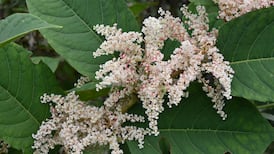Speaking at a lecture that he gave in Cambridge last week, physicist and cosmologist Stephen Hawking predicted that humanity won't "survive another 1,000 years without escaping beyond our fragile planet".
That might sound far-fetched to some, but the colonisation of space has also been on the minds of Britain's Royal Horticultural Society (RHS), who recently collaborated with the UK Space Agency and 600,000 British schoolchildren on a project that studied whether seeds exposed to microgravity and cosmic radiation in space would germinate and grow as successfully as those that remained on earth.
The bigger aim, explains the RHS, “was to discover whether humans can successfully grow their own food on long-term space missions, or even on another planet in the future”.
The Rocket Science project formally kicked off on September 2nd, 2015, when 2kg of rocket seed (Eruca sativa, the leafy salad vegetable) were launched into space on an unmanned cargo rocket.
Two days later, this docked with the International Space Station, where it remained for the next six months until being returned to Earth and eventually to the UK.
There, the seed was carefully packaged before being sent off this spring, along with samples of their earthbound equivalents, to 860 schools across the UK.
Secret
The sowing/growing took place from April to June, with the children asked to record the differences between the two batches of seed, but with the identity of the “space seed” kept secret.
The results, published last week, revealed that speed of germination as well as growth/survival rates were very slightly better for the “earth” seedlings than for the “space” seedlings.
Those small differences were due to the space seed being exposed to small levels of radiation while on board the international space station (germination and growth rates would have been considerably lower, however, if they’d been exposed to higher levels of radiation).
Summing up the project, which was carried out with the particular support of British astronaut Tim Peake, the RHS made the point that the astronauts of the future will need good gardening skills for lots of different reasons.
Food growing is probably the most important one (remember Matt Damon growing potatoes in The Martian), even though physiological changes to the human nose when in space mean it's difficult for us to taste or smell our food.
But space gardens will also provide many of the recreational benefits that earth gardens do, by promoting a sense of wellbeing and helping astronauts to cope with stress.
Visit schoolgardening.rhs.org.uk











